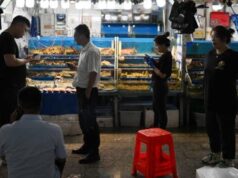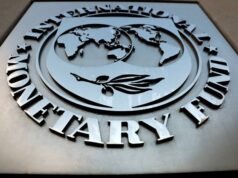The inside story: Mashkoh – Kargil as I saw it # 5
By
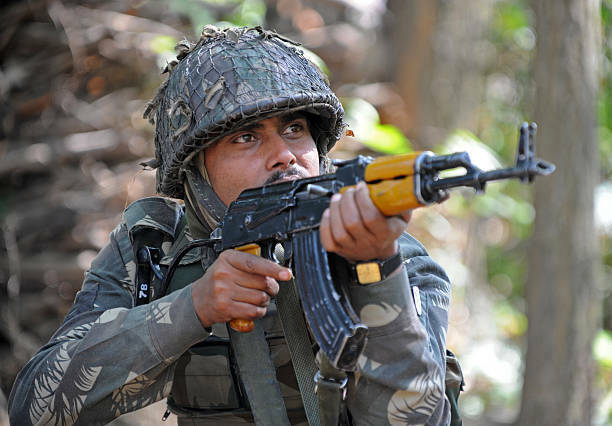
In Dec 1997, my unit (17 JAT) moved from Ganganagar to the Srinagar valley as part of the corps reserve brigade in Khrew. When we came to know that the unit would be part of the corps reserve brigade, many seniors told me to get the unit’s posting changed to someplace where you could be static and deployed permanently with company posts at one particular location. They argued that corps reserve battalions have a terrible time as they are moved from one place to the other very frequently to fill the gaps, wherever the threat perception is high. But I was determined not to ask any obligations from anyone and decided to flow with the unit’s posting as a corps reserve battalion. Sometimes, what you want may not be possible right then, and there may be nothing you can do about it. I am a firm believer that whatever happens; happens for good. Who knew that shortly the unit would participate in the Kargil war and earn laurels and create history?
We reached Khrew, near Srinagar, by the first week of Dec 1997. We were carrying out on the job training on counterinsurgency operations with the relieving unit 6 Sikh Li. It had been barely three weeks in the new environment that one-day late midnight there was a shooting incident in the unit where a young soldier on duty shot himself with his service rifle while on night sentry duty at a post. It was not a virtuous way to start in the new location. On preliminary investigation, it was revealed that the soldier had just come back from leave and probably due to some family problem at home he committed suicide by killing himself with a service weapon, while on duty. Whatever may be the reason, but it was the wrong way to start for a unit in a new location, and we had lost a valuable life in the process.
The Subedar Major Maha Singh of the unit advised the commanding officer, Col Arun Kumar, who was the commanding officer at that time, to hide the truth and to declare the incident as a result of the firefight between the soldier and the militants. The reason advocated by the Subedar Major was, the unit will get a bad name in the new formation if we declare that the soldier shot himself. But if we reported that the soldier died in the firefight with a militant, the unit will not earn a bad name. At the same time, the family of the soldier will get all the financial benefits due to a soldier who is killed in action. But if we declared the truth that it was a death due to suicide, the unit would earn a bad name and the family will lose out on many financial benefits that are due. I was the second in command of the unit and was to take over as commanding officer of the unit after two days. I always believed that we should never hide the truth whatever the consequences maybe? Therefore, I advised the then commanding officer, Colonel Arun, that we should be truthful in reporting the incident as it happened, despite any results later. Colonel Arun rightfully reported the incident truthfully to the higher headquarters. To be an effective leader, you must be honest one-hundred per cent of the time. Here is the incredible thing about honesty; you don’t have to keep track of lies you’ve told. Unfortunately, it sometimes hurts. Honesty will develop trust and respect among you, your superiors, and your subordinates. Be honest 100 per cent of the time.
GOC Victor Force Maj Gen RK Kaushal would occasionally pull me up for not doing enough for capturing/ killing terrorists in the area. I had to tell my GOC one day, “sir, my area of responsibility has no terrorists, and you should be happy that it is because my unit has been dominating the area aggressively. If you feel that my unit is not doing enough, then send my unit in the toughest area infested with terrorists, and I will show you what my unit is capable of?” The GOC was impressed with my confidence, but he could do nothing to change my area of responsibility because we were the corps reserves, and it required the corps commander’s permission to move us to any other location.
Leaders at all levels must focus on leading truthfully. Leading truthfully involves honest reporting. If you expect honest reporting from your subordinates, then you too must follow the same mandate. As a leader, you cannot have two different parameters for yourself and the men under your command. You have to do what you expect your subordinates to do. Leading truthfully changes the culture gradually and will be useful if embraced by all leaders. Military leadership is based on the foundation of trust, and trust comes from honest reporting. Telling lies is unethical, and to support one lie, you would have to tell several lies. Remember, the truth will finally come out.
I took over the command of the unit from Col Arun Kumar in the first week of Jan 1998, just two days after this shooting incident. We did “on the job” orientation training of the unit on counter-insurgency operations for six weeks, to mould the troop’s mindset towards these operations, which were so different from the usual conventional operations. We were not lucky with the area of responsibility allotted to us for the operations as terrorist activity was almost nil in our area of responsibility. We were mainly employed on road opening duties of the NH 1D. We hardly had any encounters with the terrorists, so our kitty with the kills was almost nil. But the determined don’t let the fear of failure stop them. I understood that I might fail initially and frequently, but we will succeed eventually when the time comes. We were operating under Victor Force, and GOC Victor Force Maj Gen RK Kaushal would occasionally pull me up for not doing enough for capturing/ killing terrorists in the area. I had to tell my GOC one day, “sir, my area of responsibility has no terrorists, and you should be happy that it is because my unit has been dominating the area aggressively. If you feel that my unit is not doing enough, then send my unit in the toughest area infested with terrorists, and I will show you what my unit is capable of?” The GOC was impressed with my confidence, but he could do nothing to change my area of responsibility because we were the corps reserves, and it required the corps commander’s permission to move us to any other location.
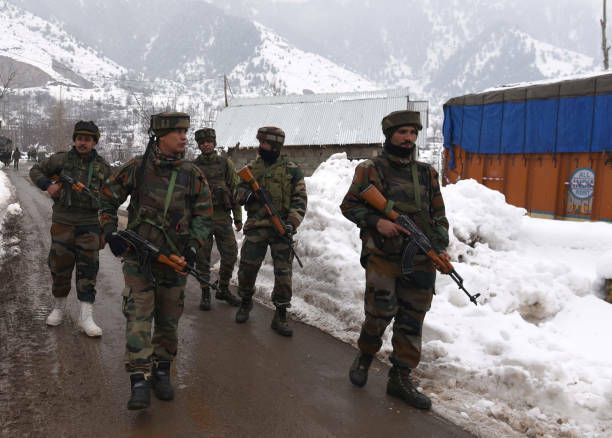
My unit was deployed in company posts, and I had to empower my company commanders to operate independently, to plan their operation within their area of responsibility and take decisions alone. I could do this because I trusted my subordinate commanders, and likewise, the subordinate commander trusted me to come to their rescue if anything wrong happened. Once, I was away to attend some wargame in the Nowgaon sector, when my second in command, Maj Jagat Singh, informed me that there had been a case of death of a suspected terrorist, while in the custody of B company commander. There was a huge hue and cry and demonstrations by the civilians, where they blocked the NH 1D leading to Srinagar. My brigade commander was very upset with the incident and wanted me to fix the company commander for mishandling the incident. Still, I took a stand and told my commander that “if I start fixing my company commanders because of their mistakes, they will stop taking risks because of the fear of disciplinary action. It would result in inaction by the subunits, for fear of disciplinary action against them. I agree that the mistake has occurred, but I will make sure that such mistakes are not repeated, and I take full responsibility for the same”. Commander understood my viewpoint and agreed with me. I settled the matter amicably with the affected party, and the tempers were cooled down for the time being. This is how you build mutual trust between you and your subordinates. That is what you call accepting responsibility for the mistakes of the juniors and finding solutions to resolve those mistakes so that they are not repeated in future. Probably, I should have briefed my company commanders in more detail while dealing with the suspects and interrogating them.
In Jun- Jul 1988, my unit was sent to Uplona, in the Baramulla district for six weeks to train on conventional offensive operations for the attack in the mountains. I think something was brewing on the border with Pakistan in the aftermath of nuclear explosions by both India and Pakistan in May 1998. These were tense moments. From Jun to Oct 1998, the enemy was shelling on the Dras – Kargil highway on the vehicles being used for advance winter stocking. The Pakistani firing had become a nuisance value, and our senior commanders wanted to teach them a good lesson. Two battalions from corps reserves were earmarked to carry out offensive operations across the LOC. The two units were 17 Jat and 14 Jak Rif.
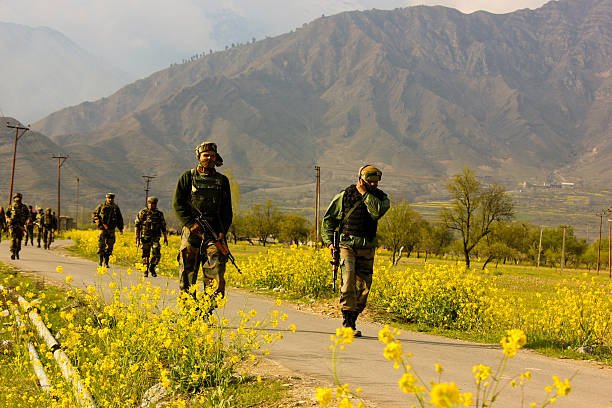
Both the units were moved to Sonamarg in early Sep 1998 to carry out acclimatisation, training, recce and prepare a plan for an attack across the LOC. The initial recce was done by commander 79 Mountain Brigade (Brig Atma Ram) and the corps commander (Lt Gen Kishan Pal) on a helicopter. They selected the objectives, and then the same was informed to us. If my memory is correct, our objective was Point 5353, across the LOC, close to Marpola, in the Dras sector. I think they wanted to silence the artillery observation post that was directing fire on our vehicles on NH 1D and the other areas of Dras. I went ahead to liaise with the holding battalion commander, 16 Grenadiers, Col Pushpinder Oberoi, located near Dras. 16 Grenadiers had two companies deployed on the LOC and two companies were held as reserves with the battalion headquarters. After my initial interaction, I found that the commanding officer was not very keen on our offensive operations in his area of responsibility. He thought that the peace and tranquillity being enjoyed by both the units opposing each other would be disturbed and create unnecessary tensions in the region. But I had a task in hand and had to complete it what come may?
I started gaining information about the objective and wanted 16 Grenadiers to send guides with our patrols as the area was new to us. But 16 Grenadiers were as clueless as us since they had never sent any patrols across the LOC. We were also supposed to get one company of Ladakh Scouts to assist us in the operations and additional fire support of artillery from the holding formation, for the operations. On initial reading of the maps of the area and limited visual recce, it appeared to be a daunting task as the forward slopes were glaciated and very steep and the only possible direction of assault was from the north, behind the objective, where the hills were gradual. The frontal attacks would have been suicidal. But then attack from the rear of the enemy positions involved the columns in moving/infiltrating under the period of darkness without detection and then assault from the rear. It had the possibility of the attack being daylighted as a significant part of the night would have been used for infiltration. If moved during the day, it was likely that the enemy could have detected our move and he would be ready to disrupt our attack before it is launched. If we moved one night before and stayed silently for the whole of the next day in enemy territory, there were all the chances of our force being detected by the enemy due to lack of cover in the area. I was actually in a dilemma to select my course of action.

We were still considering various options available to us for attacking the feature. During the end of Sep 98, then PM, Atal Bihari Bajpai, initiated a peace process with his counterpart Nawaz Sharif through back channels, to end the tensions and take the goodwill measures to the next level and find a peaceful solution to the Kashmir problem. Given the above, it was decided at the highest level, to keep our intended operations on hold. The unit was asked to fall back to its original location in Khrew, and the operations were cancelled. We were quite relieved too. In hindsight, I feel that if we had gone ahead with our operations as planned in a couple of places, probably we would have pre-empted Pakistan in their game plan. It would have prevented the intrusions next year, or else detected the intrusions much earlier. We lowered our guard and paid the price. A good lesson learnt for the future, “never trust your enemy”.
To know more about the war, read the book MASHKOH: Kargil as I Saw it

